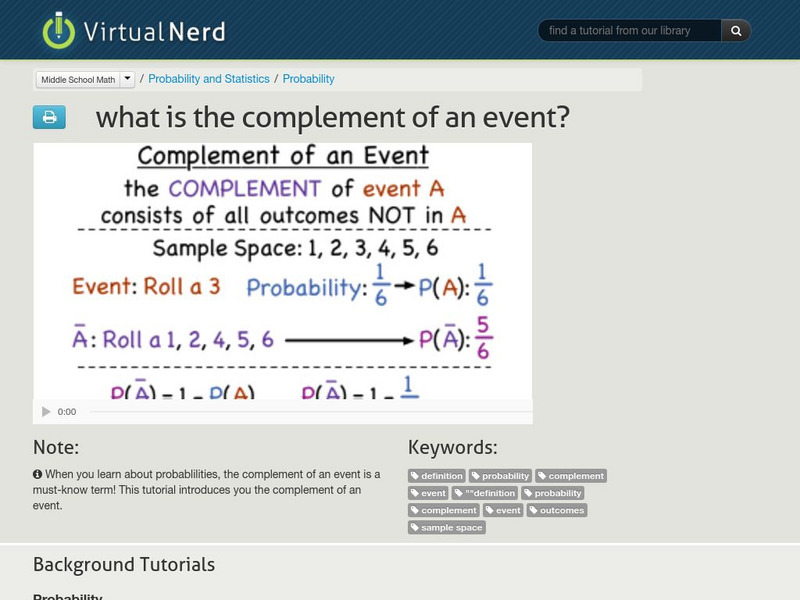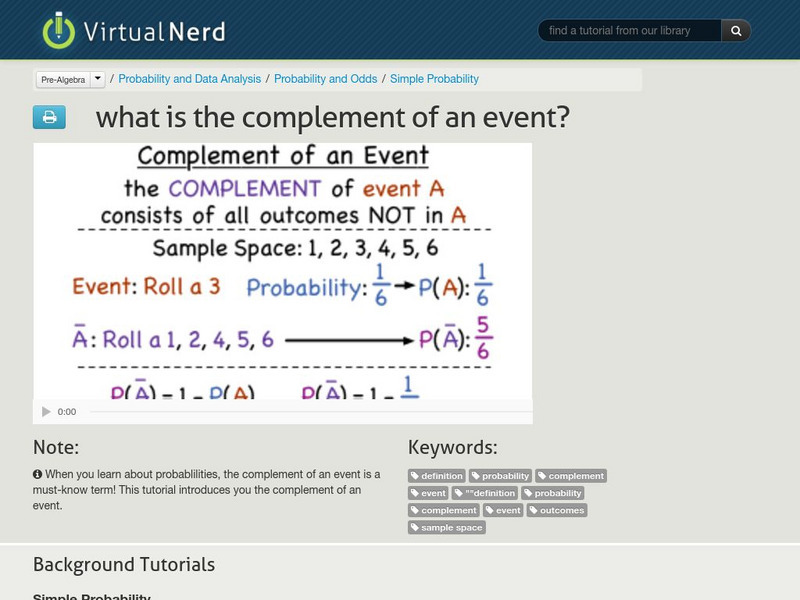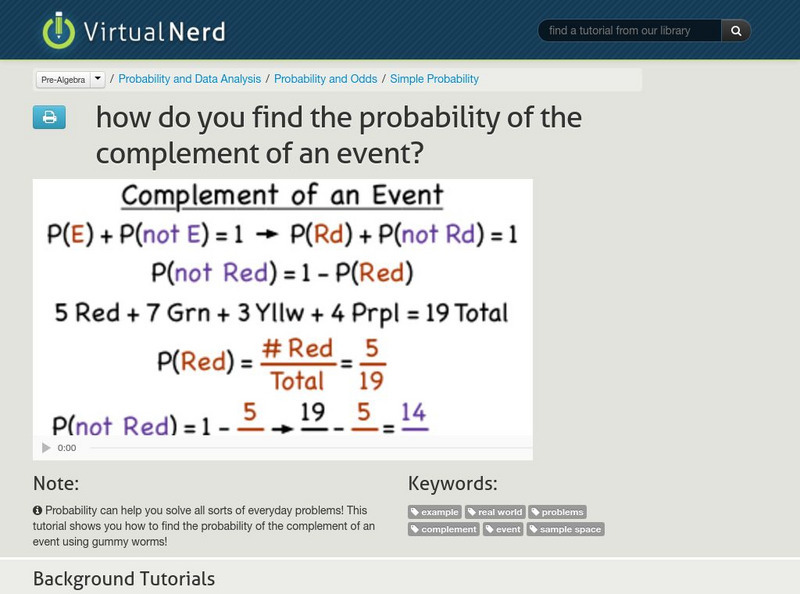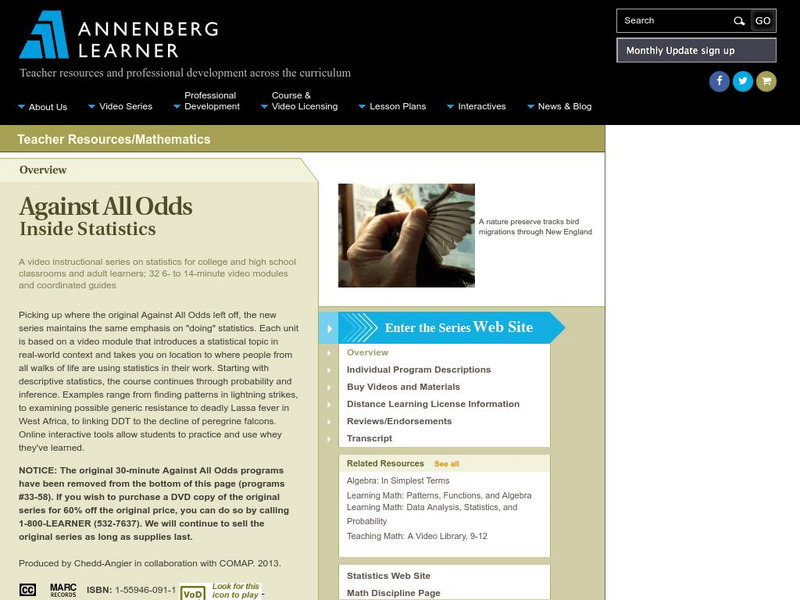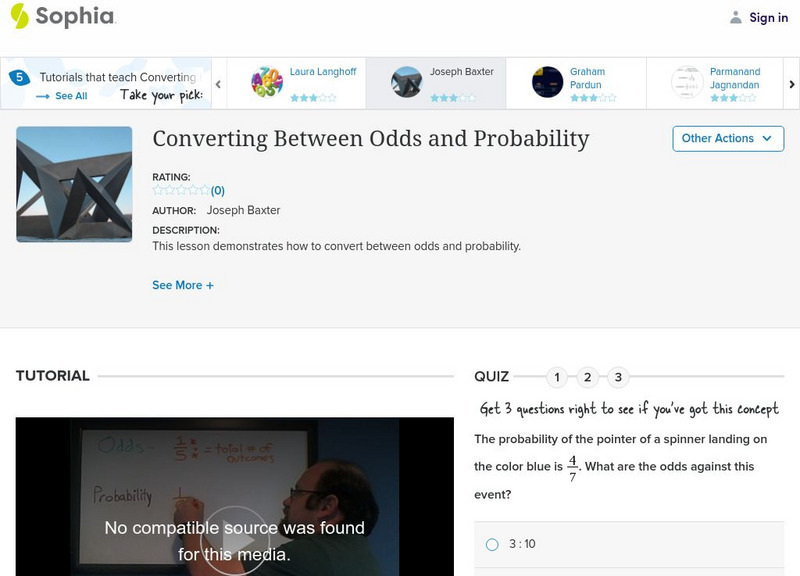Hi, what do you want to do?
FuseSchool
MATHS - Statistics - Sample Spaces
In this video we are going to look at a way of visualising outcomes from a set of probability events.A sample space shows us all the possible outcomes of one or more events. A sample space diagram is a useful way to look at multiple...
Curated Video
Explain discrepancies in results from a probability model by comparing the experimental and theoretical probabilities
In this lesson you will learn how to explain discrepancies in results from a probability model by comparing experimental and theoretical probabilities.
Curated Video
Understanding Probability and Union of Events
In this video, we learn how to determine the count and probability of the union of two events using a two-way table. The example used is the Lucky Envelope game, where we have blue and red envelopes with different contents.
Curated Video
Understanding the Union of Subsets
In this video, the teacher explains how to identify the union of two subsets using a Venn diagram and a two-way frequency table. They demonstrate this concept by using examples of odd numbers and multiples of three, and then apply it to...
Curated Video
Understanding Complements of Sets
In this video, the teacher explains the concept of complement sets by using examples from geometry and probability. The complement of a set consists of elements that are not in the original set. The video also highlights the importance...
Curated OER
How Do You Use a Tree Diagram to Count the Number of Outcomes in a Sample Space?
Deciding what to wear can be difficult, but it helps if you know your options. Use a tree diagram to solve word problems like the one in this video! Class members can watch and learn how to find and count possible outcomes (or outfits)....
Virtual Nerd
Virtual Nerd: How Do You Use a Tree Diagram to Count the Number of Outcomes
Using a tree diagram is a helpful way to visualize all the possibilities from different options. Watch the step by step process of using a tree diagram. [6:16]
Virtual Nerd
Virtual Nerd: How Do You Determine All the Possible Outcomes of an Experiment?
Watch how to make a list of all the possible outcomes of flipping a coin and rolling a dice. This video will walk you through the process using this experiment. [4:17]
Virtual Nerd
Virtual Nerd: How Do You Find the Probability of the Complement of an Event?
The complement of an event is the set of all non-favorable outcomes. Watch this demonstration to understand how to find the complement of an event. [5:36]
Virtual Nerd
Virtual Nerd: What Is the Complement of an Event?
To understand complementary events, watch this video that explains the term along with examples. [4:53]
Virtual Nerd
Virtual Nerd: What Is an Outcome?
The outcome of an experiment is any possible result. Watch this tutorial for an explanation and an example using dice. [2:09]
Virtual Nerd
Virtual Nerd: What Is the Fundamental Counting Principle?
The Fundamental Counting Principle is a way to find out the total number of ways different events can occur. Watch this example using multiple types of meat, cheese, and bread to see how many types of sandwiches you can make. [5:54]
Virtual Nerd
Virtual Nerd: What Is the Complement of an Event?
This tutorial introduces probabilities and the complement of an event. [4:53]
Virtual Nerd
Virtual Nerd: How Do You Find the Probability of the Complement of an Event?
Probability is useful when solving everyday problems. Watch this tutorial to see how to find the probability of the complement of an event using gummy worms. [5:36]
Khan Academy
Khan Academy: Sample Spaces for Compound Events
Demonstrates how to show the sample space for a probability experiment with compound events using a tree, diagram, table, or a list. [9:09]
Khan Academy
Khan Academy: Probability of a Compound Event
Demonstrates how to use a diagram to find all possible outcomes, or the sample space, of a probability experiment. [5:02]
Virtual Nerd
Virtual Nerd: What Is a Sample Space?
This video explains what a sample space is in a probability experiment and shows how to determine what all the possible outcomes are. [4:06]
Annenberg Foundation
Annenberg Learner: Against All Odds: What Is Probability?
A video program on probability, covering relative frequency, randomness, sample space, and probability rules. Includes a discussion about statistician Persi Diaconis' work with probability theory. [29:06]
Khan Academy
Khan Academy: Probability: Coin Flipping Example
Video finding the probability of exactly two heads in three coin flips by looking at the sample space. [2:13]
Khan Academy
Khan Academy: Basic Probability: Example: Marbles From a Bag
Video lesson demonstrating the probability of picking a certain color of marble out of a bag. Includes finding the sample space.
Sophia Learning
Sophia: Converting Between Odds and Probability
Use the probability of an event to determine what the odds of the outcome will be. Assess learning with a quiz.
Sophia Learning
Sophia: Sample Space
This video lesson defines and provides examples of sample space. Students can check their understanding with an assessment.
Virtual Nerd
Virtual Nerd: What Is the Fundamental Counting Principle?
An introduction to the Fundamental Counting Principle, a method of figuring out the total number of ways different events can occur. [5:55]
Sophia Learning
Sophia: Sample Space
This video resource defines and provides examples of sample space.










